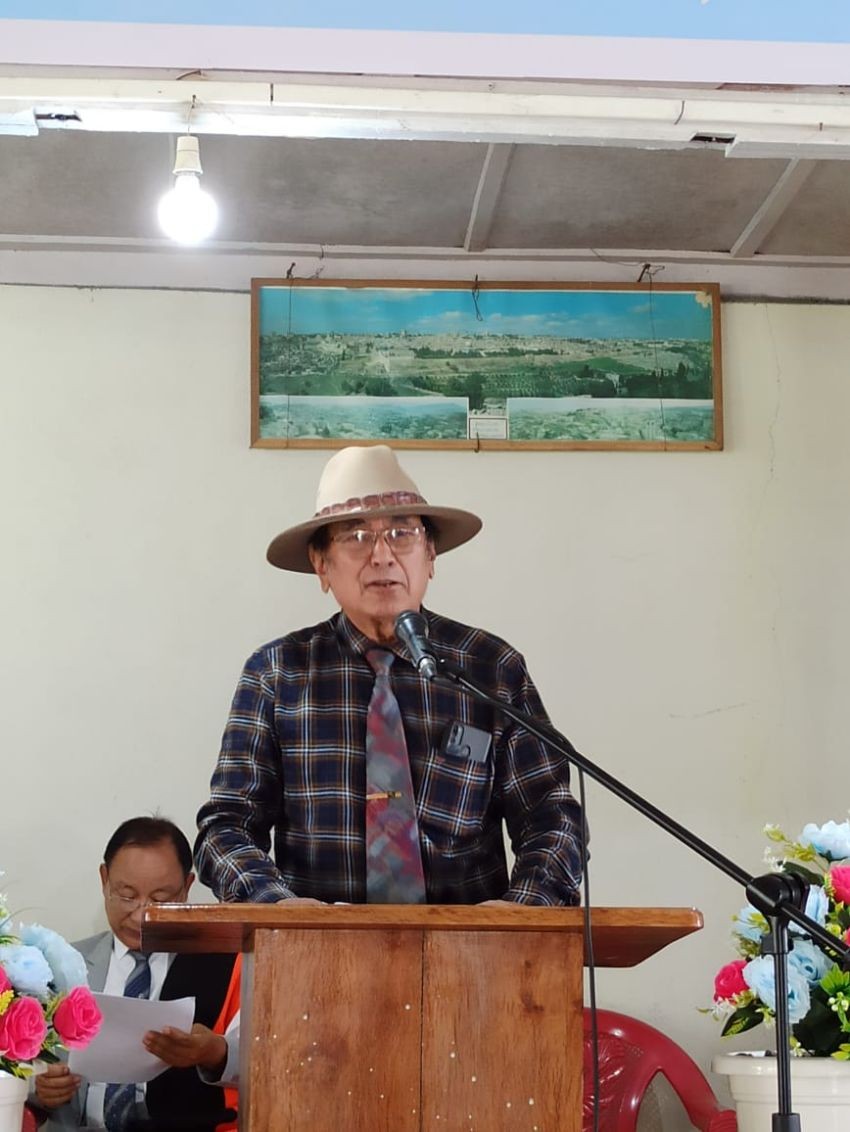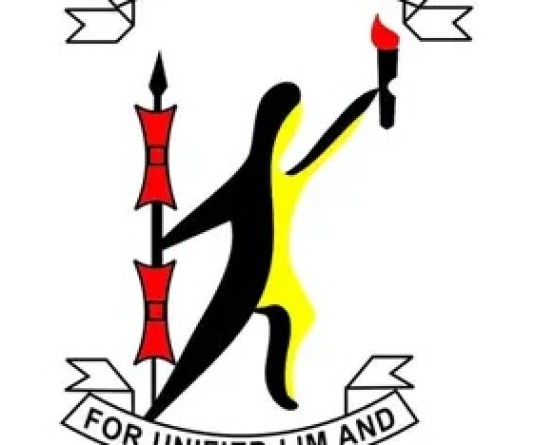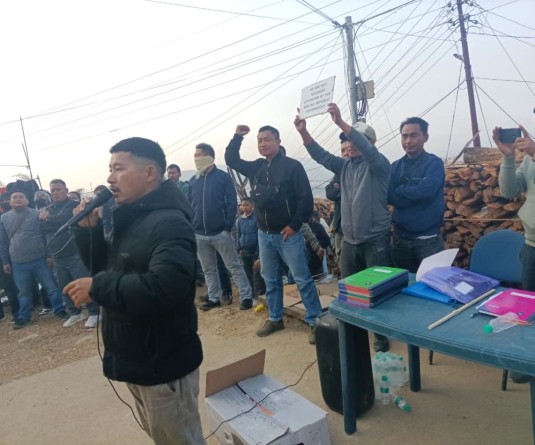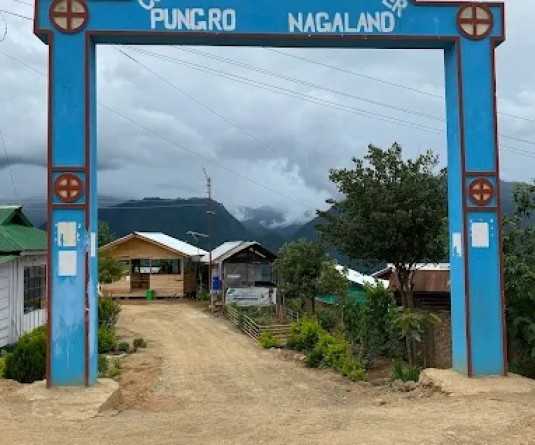Thepfulhouvi Solo speaking at the 61st Indo–Naga ceasefire day at Chedema Peace Hall, Chedema on September 6.

Our Correspondent
Kohima | September 6
The Federal Government of Nagaland (FGN) observed the 61st Indo-Naga Ceasefire Day at Chedema Peace Hall under Kohima district on Friday.
Addressing the gathering, retired IFS officer Thepfulhouvi Solo reflected on the 1972 abrogation of the Indo-Naga ceasefire, originally signed on September 6, 1964, between the FGN and the Government of India. Solo said the ceasefire was unilaterally ended by the Indian government without prior notice, leaving the "post-ceasefire future of the land... still hanging in the air."
Despite this, Solo emphasized the significance of the ceasefire: “The FGN and the people of Nagaland joyfully celebrate the great Ceasefire [which] brought tremendous peace, security, and succour to all the people in Nagaland.”
He highlighted the suffering endured by Nagas for 132 years, from 1832 until the 1964 ceasefire. “None of the other Mongolian Hill People, including the Meiteis of Manipur, suffered intermittent violence as much as the Naga people in the struggle for their freedom,” Solo said. Villages were burned repeatedly, forcing people—men, women, and children—into the jungle with little protection.
Solo recounted how villagers from places like Chedema risked their lives to fetch food from their homes at night, often becoming targets of army sentries. “Villages like Chedema bore prolonged and untold heavy punishments at the hand of the army for not producing their member Biseto Medon of the FGN,” he said, adding that Biseto never surrendered despite pressure from the authorities.
Solo also reflected on the restrictions and hardships Naga villagers faced before the 1964 ceasefire. The Indian Army imposed curfews under Indian Penal Code Section 144, preventing civilians from moving freely. “The army set up ambush parties in jungle tracts, recruited secret informers, and looked out for smoke from the cooking fires of Naga guerrillas hiding in the forests,” Solo said.
When India created Nagaland as its 16th state on December 1, 1963, in an attempt to bring normalcy, Solo said the move failed to satisfy the Naga longing for freedom. The FGN and the Naga National Council continued to resist. “The Indian Army, with their shining armours, promised the highest authorities of the country that it would crush the 'misguided Naga groups' in a matter of weeks, but the guerrilla fight continued,” Solo said. “Troops were increased, and although the FGN fighters ran short of food and ammunition, they resisted for years.”
Solo stated that after several years of fighting, the Indian authorities realized there could be no military solution to the Naga issue. This led to the establishment of a peace mission involving Naga elders, church leaders, and figures like Rev. Michael Scot, Assam Chief Minister Bimala Prasad Chaliha, and Jayaprakash Narayan, which ultimately brokered the 1964 ceasefire at Sakraba village.
In contrast, Solo said, today’s ceasefires between the Government of India and various Naga groups—including the NSCN-IM and multiple factions—have only led to “apprehensions, suspicions, and insecurity,” creating problems for the public and businesses alike. He expressed hope that the FGN, as the oldest Naga political body, would shoulder the responsibility of finding a lasting solution.
Solo emphasized that Naga society is built on equality and justice, stating, “All are equal; man and woman have equal social status in society; there is no caste.” He added, “The land belongs to the people, not to any other. Even if the Constitution of India were given in exchange for our democracy, no Naga would hesitate to decline the offer.”
He concluded by underscoring the deeply ingrained values of freedom, equality, and justice in Naga culture. “All traditions, practices, and cultures were honed out of a long life of common reality, of which freedom is the most valued, followed by equality and justice,” he said.
The program was led by Rev. Dr. Kevekhalo Lasuh, senior pastor of Chakhesang Baptist Church, Kohima.






